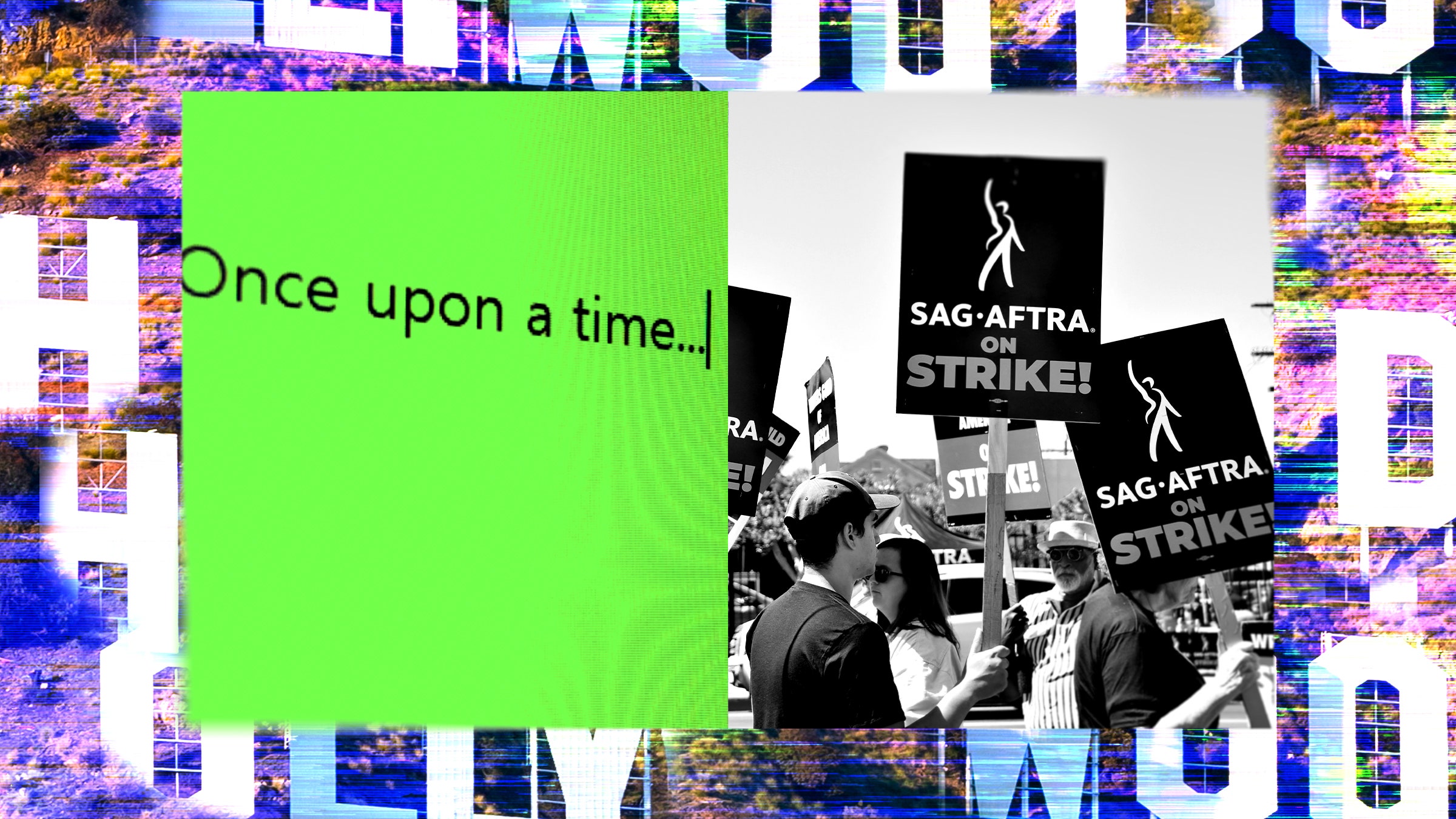
To Save Itself, Hollywood Must Build Its Own ChatGPT
The Writers Guild of America (WGA) is striking against studios in pursuit of a new contract that lets writers participate more fully in the industry. The central disagreements are about economics, but the issue that has captured the most public attention is the threat posed by so-called artificial intelligence—products like ChatGPT—to the livelihood of creative professionals, including writers.
ChatGPT is a generative AI program that has been trained on a massive corpus of text to predict the word or words that should follow a text prompt or word string. It is not intelligent, though its user interface has been designed to create that illusion.
Studios perceive that generative AI is a tool they can use against writers. Some kinds of programming can be formulaic—awards shows and sitcoms, for example—which encourages writers to mimic scripts that have been successful in the past. In theory, a well-constructed generative AI could provide a first draft of such a script. But studio executives have gone one step further, imagining that products like ChatGPT will transform the writing process for everything from awards shows to feature films. Studios see this as both a potential cost savings and a way to convert script writing from copyrightable work to work for hire.
It is almost certain that they will embrace generative AI, even if it produces nothing but junk, which is what they will get. They have drunk the Kool-Aid poured by Silicon Valley’s hype merchants.
My experience working in Hollywood—as a consultant on Silicon Valley for five seasons and through involvement in documentaries like The Facebook Dilemma, The Social Dilemma, and The Great Hack—has led me to believe that if studios are smart, they will understand that their interests are aligned with those of writers, directors, and all creative people. Silicon Valley is coming for their profit margin.
CEOs believe that generative AI will reduce their labor costs. What they are missing is that Silicon Valley plans to use AI to do to Hollywood what it did to news and music. Silicon Valley’s bait-and-switch tactics follow a pattern that Cory Doctorow, writing about social media, refers to as “enshittification.” Social media platforms offer benefits to users until they are hooked, then they “enshittify” the product to appeal to advertisers. Once advertisers are on board, platforms “enshittify” their experience, as well as that of users, to extract maximum value. They perfected the game plan at Facebook, YouTube, Instagram, Twitter, SnapChat, and TikTok and are now extending it outside of social media.
We see this in video streaming technology, the first step in a siege against Hollywood. As Big Tech always does, it baited the trap with short-term benefits, such as an increased investment in programming, which emerged in the form of a golden age of high-quality, limited run series. Streaming caused an explosion in the number of shows, but each show had many fewer episodes, which meant writers would only be employed for eight or 10 weeks at a time. In addition, streaming undercut television syndication, which had been a big source of income for writers. Streaming’s touted benefits have eroded rapidly over the past two years as studios have entered the streaming market, saturating consumer demand and forcing all involved to cut costs.

